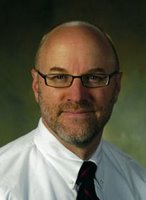Thanks for all the b-day wishes. I must say it's been a pretty perfect day. And how often can you say that when you start by waking up in a hotel in Poughkeepsie on a cold rainy October day?
Several months ago my oldest drove across country to return to college. On the old Lincoln Highway (US 30). All the way.
I was jealous, but not wanting to spoil his trip with my company (he had a friend to co-pilot) I instead convinced my wife to take a local road trip vacation with two rules: no interstates, no chains. We committed to only one fixed event in the week and have left the rest to whatever strikes our fancy. So last Sunday we packed a small suitcase with two changes of clothes, headed north via the backroads to Princeton where we walked the Delaware and Raritan Canal towpath with friends older than our marriage. I knew about the Erie Canal, but the Delaware and Raritan? Nice. After a Thai dinner we parted ways with our friends and meandered to Milford, PA and the Hotel Fauchére. Eat your heart out Four Seasons.

Monday we toured Grey Towers, the home of Gifford Pinchot, former PA governor and first head of the US Forestry Service. A gorgeous day and a chance for Elaine to talk to someone about American Chestnut blight, which in her book means fun. For my part the grounds were gorgeous, the house more so, and the stories entertaining.
Later we headed a few minutes north to pay our respects to the site of the Woodstock Festival. As we walked up to the roadside monument someone was playing a Janis Joplin tune. Fitting.
From there we wound our way past innumerable Jewish summer campgrounds, across the Shawangunk Mountains, into the Hudson Valley and across the mid-Hudson bridge to Poughkeepsie. And what's there to say about Poughkeepsie? We didn't have reservations anywhere and so settled for a generic local hotel last renovated in the 80's. Sad as it was however the staff was predominantly young can do New Yorkers who were aggressively good at their jobs. Good thing we checked in before the Yankees lose the series.
Today we toured the Hyde Park home of Franklin Roosevelt and just returned from a fantastic dinner at the Culinary Institute of America. We also found a great spot to stay in Rhinecliff; right on the water, impeccable service and decor, and half-price!
The best part however is that by taking the back roads and taking our time it feels like we've gone to the other side of the world and have been gone for a week, even though it's only been two days.
I don't think I'll drive an interstate highway again.

